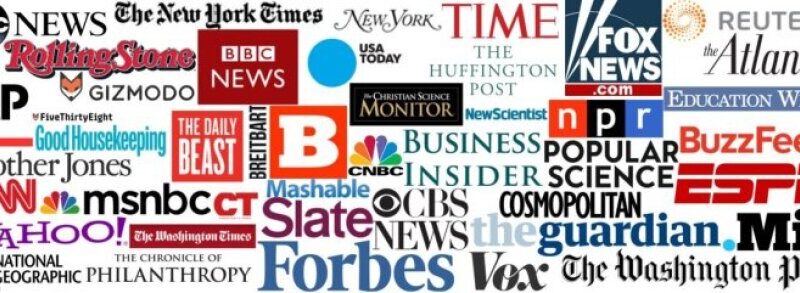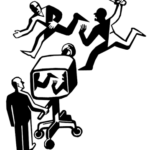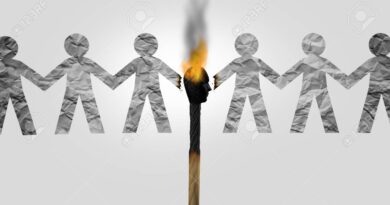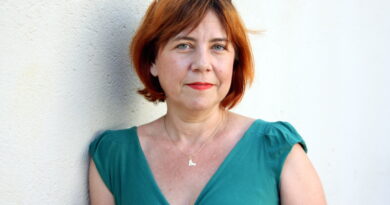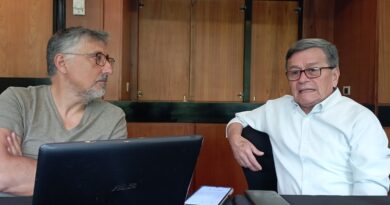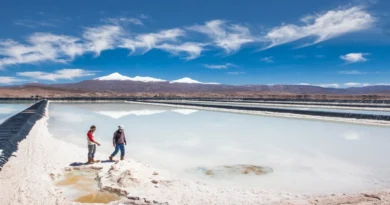The news has nothing to do with newsworthiness
CAITLIN JOHNSTONE
I don't mention it often, but I have a degree in Journalism. I graduated with honors from the Royal Melbourne Institute of Technology in 2003, and although it was another thirteen years before I put my degree into practice, the experience played a key role in shaping my opinions of the mainstream press.
One of the lessons I think about a lot came early in my two-week internship at Channel 10's Eyewitness News (now 10 News First), when one morning I watched the show's scruffy news editor chalk up the reports assigned to each one. I had been paying close attention to television news because that was what we were studying, and I had noticed that the stories Channel 10 covered were always exactly the same as those covered by Channel 7 and Channel 9, usually in the same order.
“Why do you always cover the same news as Channel 7 and Channel 9?” I asked. “Do you call each other by phone to coordinate?”
Series.
“No, but it's a bit strange, isn't it?” he agreed. “I guess that's what's called 'news sense'.”
Even then it was difficult for me to believe that all news editors had some magical “sense” that would let each one know which were the most newsworthy stories day after day in a world full of events and ordeals.
Since then I have learned about the effect of groupthink that working in the mainstream press tends to have on people's minds, according to those who have made a career there, and the fact that journalists who don't know how or aren't interested in dancing to the rhythm of the task of setting the media agenda plutocratics are not promoted to news editors. It's not that editors coordinate with each other across the media or receive instructions on what to report from oligarchs and government agencies, it's that if they were the kind who needed to do those things to know what to report, they wouldn't be working where they work.
How did the mainstream press know ignore the scandal of a Ukrainian Nazi applauded in the Canadian parliament? How did they know how to discredit Bernie Sanders and Jeremy Corbyn? How do they know how to support all wars while ignoring homelessness and economic injustice? It sure isn't "common sense."
In a controversial 1996 discussion between Noam Chomsky and British journalist Andrew Marr, Chomsky described a “filtering system” that “selects for obedience and subordination” and that determines who rises to the top of the most influential platforms in the Western world. Chomsky mocked the false image that mainstream journalists have of themselves as “a profession of crusaders” who are “adversaries” and “confronting power,” stating that it is almost impossible for a good journalist to do so. significantly in the Western press.
“How can you know I censor myself?” Marr objected. “How can you know that journalists are…”
"I'm not saying you self-censor," Chomsky replied. “I'm sure you believe everything you say. But what I'm saying is that if you believed something differently, you wouldn't be sitting where you are sitting."
In a 1997 essay, Chomsky added that “the thing is, they wouldn't be there unless they had already shown that no one has to tell them what to write because they're going to say the right thing anyway.”
When I graduated I had already realized that I would not be able to use my journalism degree to do real journalism. They had made it clear to me that I would have to spend the first few years rewriting Reuters and AP stories and avoiding creating any problems, and that even if I got past that point there was very little to look forward to; the television reporters of Channel 10 wrote their stories before They would go to their reporting location and just look for things that supported their pre-written narrative, so there was never any real fact-finding or real journalism on the ground.
So I didn't bother. I raised my children, worked in a company, ran a business and a small green blog, and dedicated myself to learning about life. I couldn't predict that the Internet would eventually give rise to a new wave of crowdfunded journalism that would allow me to spend my time on this planet doing what I do today. But now that I've done it, I find myself thinking back to that news editor at Eyewitness News and realizing that the stories I focus on are almost never the same ones the mainstream press covers on any given day.

